
Colon: The Gateway to Panama's Caribbean Jewels
Colon, a city steeped in history and culture, is a must-visit destination for travelers exploring Panama’s Caribbean coast. As the entrance to the world-renowned Panama Canal, Colon offers a unique blend of historical significance and natural beauty. The city’s proximity to the canal makes it a strategic and vibrant hub, attracting visitors from around the globe. Strolling through the streets of Colon, you’ll encounter a rich tapestry of colonial architecture and modern developments. The city’s heritage is reflected in its old churches, charming plazas, and vibrant street markets. The local cuisine, influenced by various cultures, is a culinary adventure waiting to be explored. Don’t miss the chance to try fresh seafood dishes that are a staple of the region. Beyond the city limits, Colon is a gateway to some of Panama’s most stunning natural attractions. The nearby San Lorenzo National Park offers lush rainforests and the historic San Lorenzo Fort, providing a glimpse into the past amidst breathtaking scenery. For those seeking sun and sea, the pristine beaches of Isla Grande and Portobelo beckon with their crystal-clear waters and vibrant marine life. Whether you’re a history buff, nature lover, or beach enthusiast, Colon promises an unforgettable experience.
Local tips in Colon
- Visit the Panama Canal at the Gatun Locks to witness the engineering marvel up close.
- Explore the local markets for unique crafts and fresh produce.
- Try the traditional Panamanian dish, 'ceviche,' at a local restaurant.
- Hire a local guide for a more in-depth exploration of the San Lorenzo National Park.
- Take a day trip to Isla Grande for snorkeling and beach activities.
Colon: The Gateway to Panama's Caribbean Jewels
Colon, a city steeped in history and culture, is a must-visit destination for travelers exploring Panama’s Caribbean coast. As the entrance to the world-renowned Panama Canal, Colon offers a unique blend of historical significance and natural beauty. The city’s proximity to the canal makes it a strategic and vibrant hub, attracting visitors from around the globe. Strolling through the streets of Colon, you’ll encounter a rich tapestry of colonial architecture and modern developments. The city’s heritage is reflected in its old churches, charming plazas, and vibrant street markets. The local cuisine, influenced by various cultures, is a culinary adventure waiting to be explored. Don’t miss the chance to try fresh seafood dishes that are a staple of the region. Beyond the city limits, Colon is a gateway to some of Panama’s most stunning natural attractions. The nearby San Lorenzo National Park offers lush rainforests and the historic San Lorenzo Fort, providing a glimpse into the past amidst breathtaking scenery. For those seeking sun and sea, the pristine beaches of Isla Grande and Portobelo beckon with their crystal-clear waters and vibrant marine life. Whether you’re a history buff, nature lover, or beach enthusiast, Colon promises an unforgettable experience.
When is the best time to go to Colon?
Iconic landmarks you can’t miss
Panamá Viejo
Explore Panamá Viejo, a UNESCO World Heritage site rich in history, stunning ruins, and breathtaking views of the modern city.
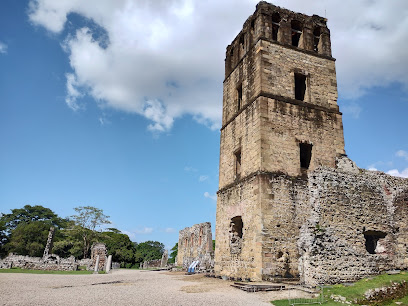
Parque Municipal Summit
Explore the lush landscapes and vibrant biodiversity of Parque Municipal Summit, a top botanical garden and park in Panama's stunning natural setting.
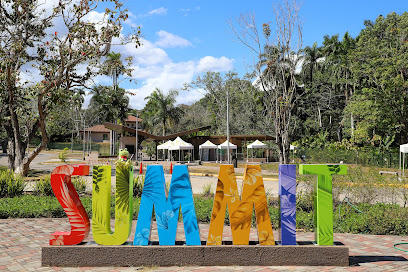
Gamboa Rainforest Reserve
Explore the captivating Gamboa Rainforest Reserve in Panama, a nature lover's paradise with stunning wildlife and luxurious accommodations.
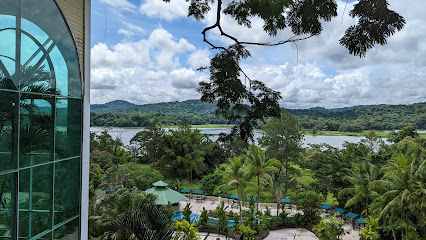
Agua Clara Locks Visitor Center
Discover the engineering marvel of the Panama Canal at the Agua Clara Locks Visitor Center, where history and innovation meet breathtaking views.
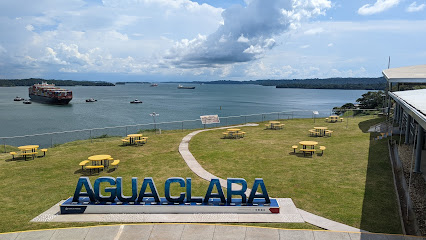
Parque Nacional Soberanía
Explore the rich biodiversity and stunning landscapes of Parque Nacional Soberanía, a must-visit national park in Panama for nature lovers and adventure seekers.
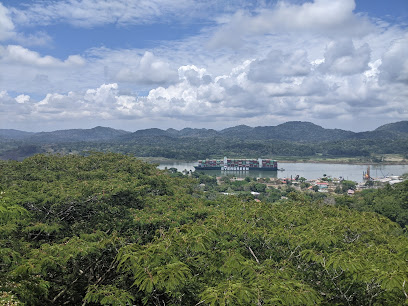
Millennium Plaza
Explore Millennium Plaza in Colón, Panama, a vibrant shopping destination with local crafts, global brands, and delightful dining options.
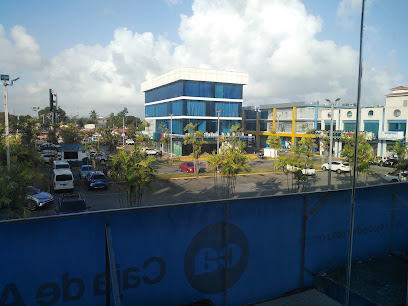
Fort San Lorenzo
Explore the historic Fort San Lorenzo in Colón, Panama, a UNESCO World Heritage site with stunning views and rich colonial history.
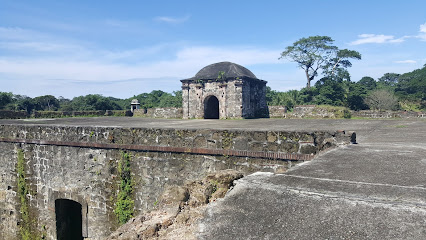
Colón 2000 Mall
Experience the vibrant shopping culture of Colón 2000 Mall, where diverse retail, dining, and entertainment options await every shopper.
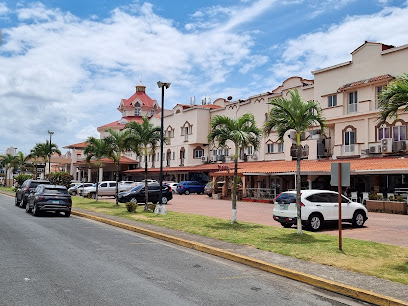
Paseo Marino
Explore Paseo Marino, a serene city park in Colón, Panama, where nature meets culture amidst stunning waterfront views and vibrant local events.
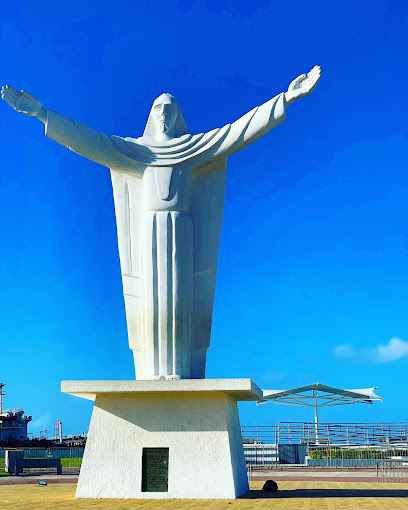
Parque Nacional Chagres
Discover the lush landscapes, rich biodiversity, and cultural heritage at Parque Nacional Chagres, Panama’s hidden gem for nature lovers and adventure seekers.
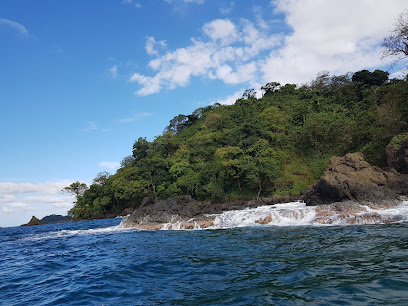
Rey | Calle 13
Discover the essence of Panamanian culture at Rey Supermarket in Colón, where local flavors and daily life come together in a vibrant shopping experience.
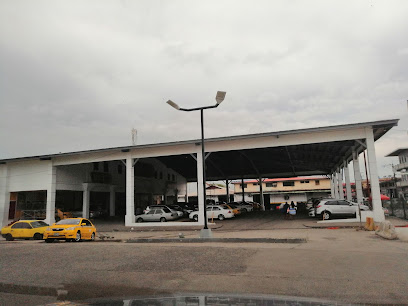
Centro de Visitantes Agua Clara
Explore the marvel of the Panama Canal at Centro de Visitantes Agua Clara, a must-see attraction showcasing engineering brilliance and natural beauty.
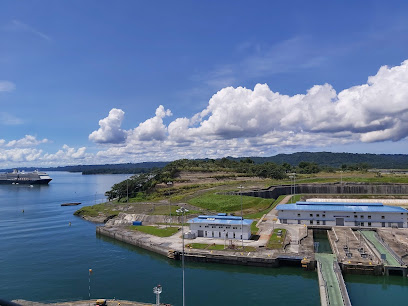
Park of Youthfulness
Experience the enchanting beauty of the Park of Youthfulness in Colón, Panama—a perfect destination for relaxation, recreation, and community events.
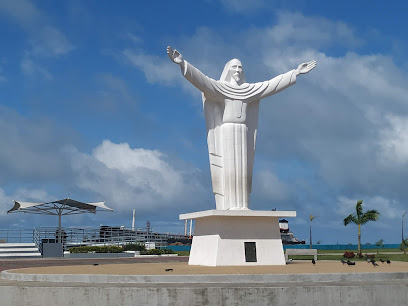
Parque Nacional Portobelo
Explore the breathtaking Parque Nacional Portobelo, a stunning national park in Panama with rich biodiversity and historical significance.
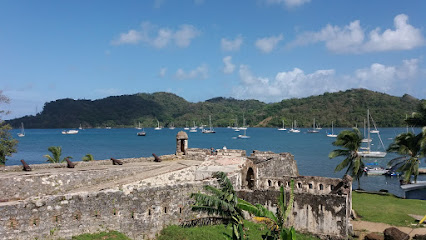
Puerto de Cruceros
Explore Puerto de Cruceros, a vibrant port in Colón, Panama, where adventure meets rich maritime culture and stunning Caribbean views.
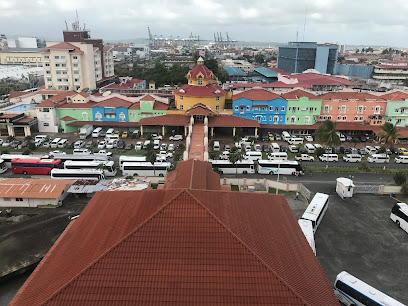
Unmissable attractions to see
Gamboa Rainforest Reserve
Discover Gamboa Rainforest Reserve: A Tropical Paradise of Biodiversity and Adventure in Panama's Lush Wilderness.
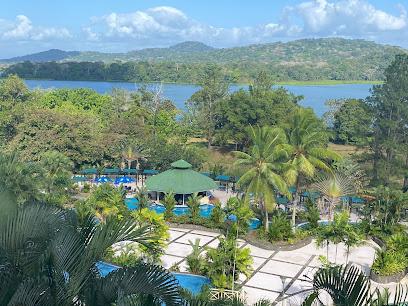
Agua Clara Locks Visitor Center
Visit the Agua Clara Locks Visitor Center to explore the Panama Canal's engineering marvels and enjoy stunning views of ship transits between oceans.
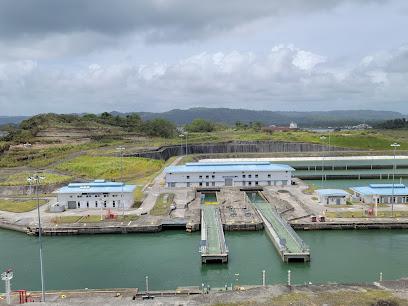
Cerro Ancon Reserve
Explore the breathtaking Cerro Ancon Reserve, a serene urban oasis in Panama City offering stunning views, diverse wildlife, and tranquil walking trails.
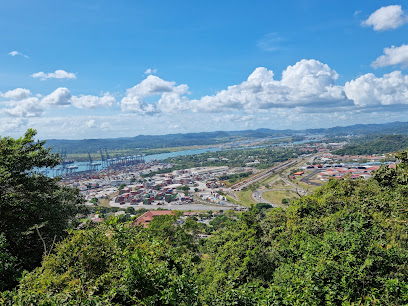
Crazy Park Panama
Discover the ultimate fun at Crazy Park Panama, where thrilling rides and family-friendly attractions create unforgettable memories in the heart of Panama City.
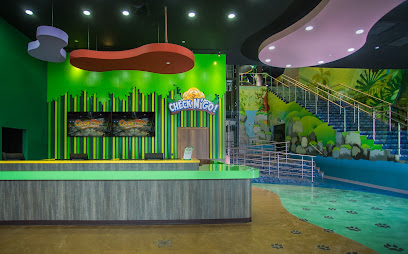
Castillo de San Lorenzo Real de Chagres
Discover the historical significance and breathtaking views at Castillo de San Lorenzo Real de Chagres, a UNESCO World Heritage site in Panama.
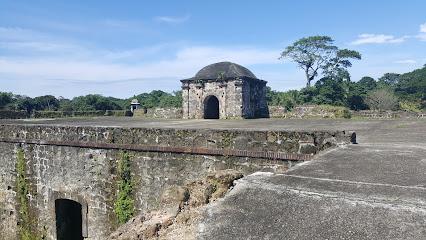
Metropolitan Natural Park Visitor Center
Discover the breathtaking nature and wildlife at the Metropolitan Natural Park Visitor Center in Panama City, a serene escape amidst urban life.
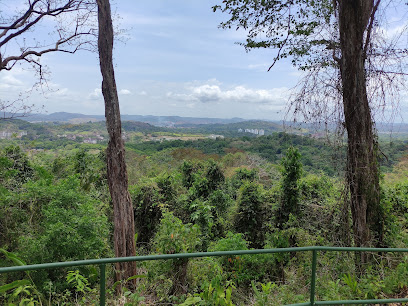
Altos de Campana National Park
Explore the stunning Altos de Campana National Park, a natural paradise in Panama Oeste with breathtaking views and diverse wildlife.
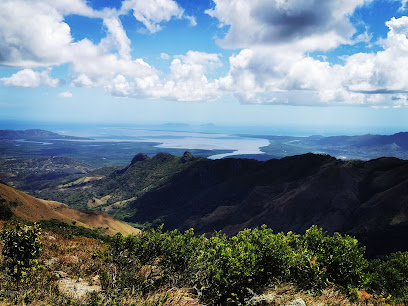
Paseo Marino
Experience the tranquility of Paseo Marino, a beautiful city park in Colón, Panama, with stunning views of the Panama Canal and lush landscapes.
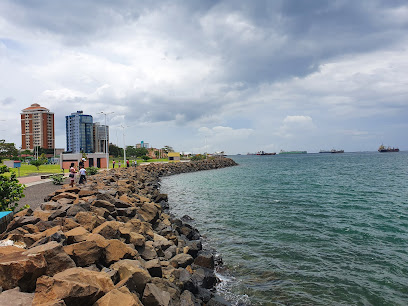
Butterfly Haven
Experience the magic of Butterfly Haven in El Valle de Antón, where vibrant butterflies and lush gardens create an unforgettable nature escape.
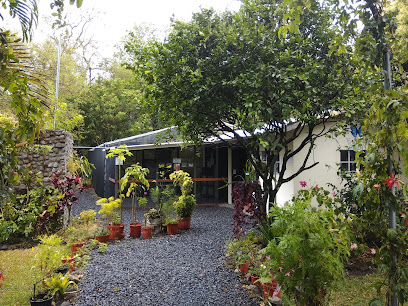
Playa Blanca, Colón
Explore Playa Blanca, Colón: A National Park Paradise with Pristine Beaches, Diverse Wildlife, and Unforgettable Outdoor Adventures.
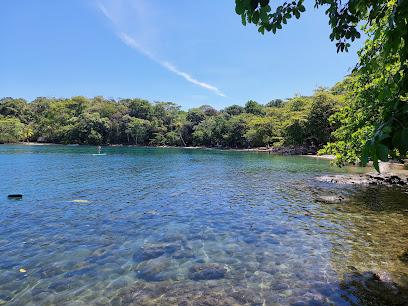
Parque Nacional Portobelo
Discover the breathtaking beauty and rich history of Parque Nacional Portobelo, a must-visit national park in Colón Province, Panama.
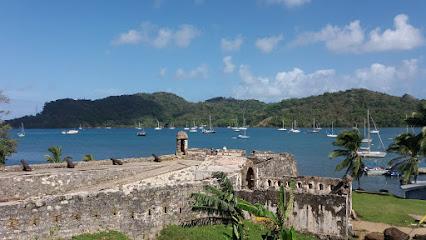
Puente Centenario
Explore Puente Centenario, a stunning bridge in Panama offering breathtaking views and a slice of rich history within the lush landscapes of the Panama Canal.
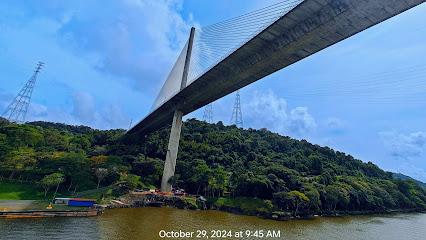
Puerto de Cruceros
Explore Puerto de Cruceros, the vibrant gateway to Panama's rich culture, stunning landscapes, and unforgettable adventures along the Caribbean coast.
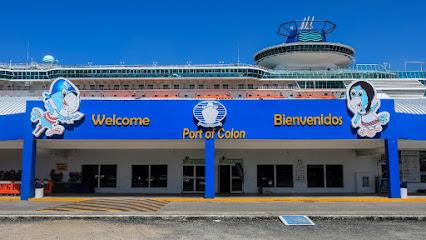
Gatun Lake
Discover the serene beauty of Gatun Lake, Panama's breathtaking artificial lake surrounded by lush rainforests and vibrant wildlife, perfect for adventure and relaxation.
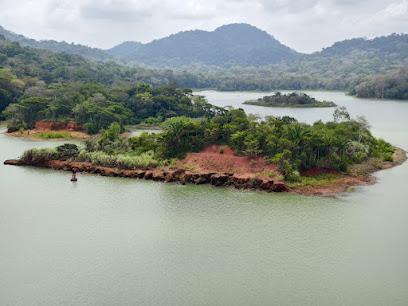
Iglesia de San Felipe
Discover the rich history and stunning architecture of Iglesia de San Felipe, a must-visit attraction in Portobelo, Panama.
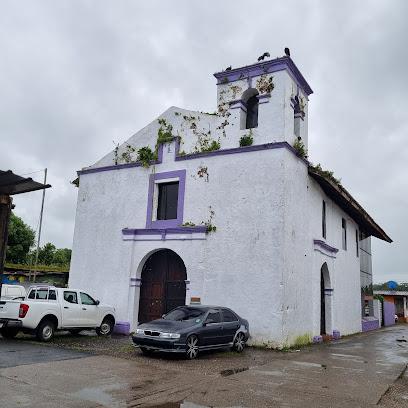
Essential places to dine
Arrecifes
Experience the flavors of Panama at Arrecifes in Colón—where every dish tells a story of culinary tradition.
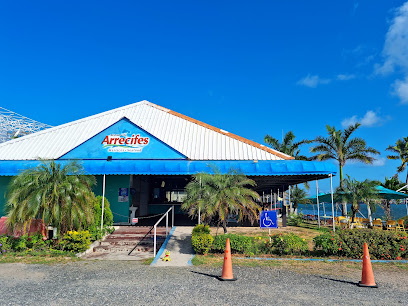
Grand Cafe
Discover delicious Panamanian cuisine at Grand Cafe in Colón – where every dish tells a story.
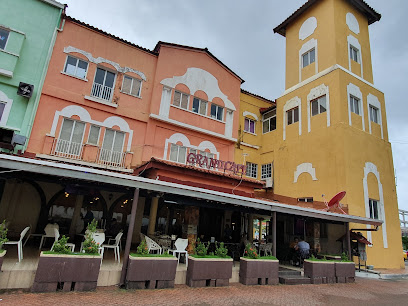
Restaurante Beirut
Discover authentic Lebanese cuisine at Restaurante Beirut in Colón – a delightful dining experience blending tradition with taste.
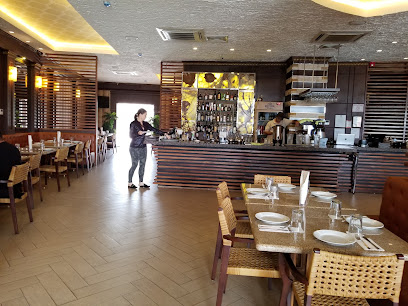
KOKIO
Experience authentic Korean cuisine at KOKIO in Colón - where flavor meets tradition in an inviting atmosphere.
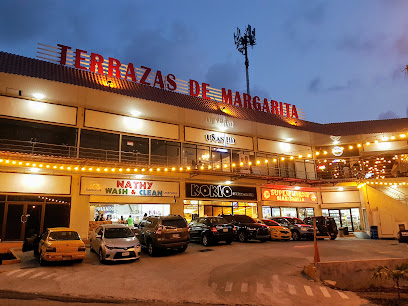
Club Arabe
Discover the flavors of Colón Province at Club Arabe - a culinary hotspot offering delicious dishes in a vibrant setting.
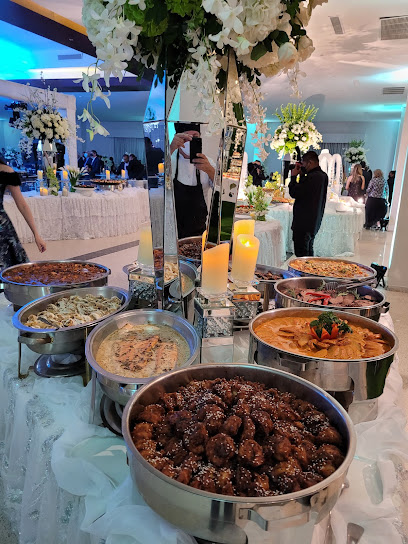
Restaurante Hudson
Discover the culinary delights of Restaurante Hudson in Colón, Panama—where local flavors meet international cuisine in a cozy setting.
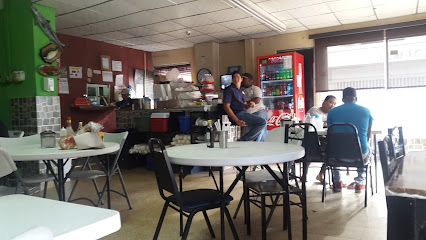
Restaurante Nuevo 2 Mares
Experience authentic Panamanian seafood at Restaurante Nuevo 2 Mares - where fresh flavors meet warm hospitality in Colón.
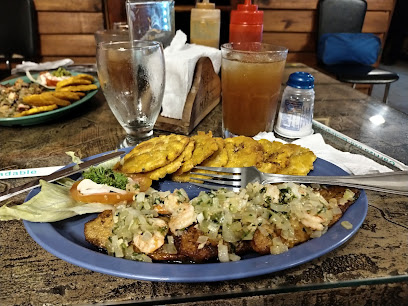
Restaurante Portobelo (Sopas Colón)
Experience authentic Panamanian cuisine at Restaurante Portobelo in Colón – where every dish tells a story.
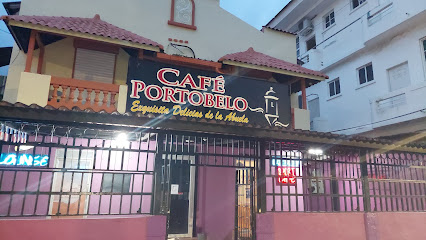
Restaurante Chepes
Experience authentic Panamanian cuisine at Restaurante Chepes in Colón – where every dish tells a story.
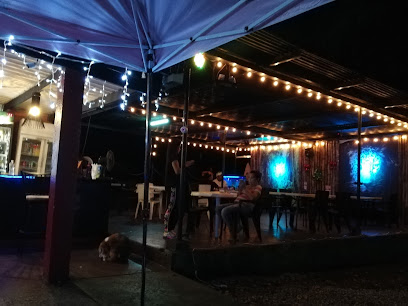
Restaurante Don Tony
Experience the authentic flavors of Chinese cuisine at Restaurante Don Tony in Colón, Panamá – where every dish tells a story.
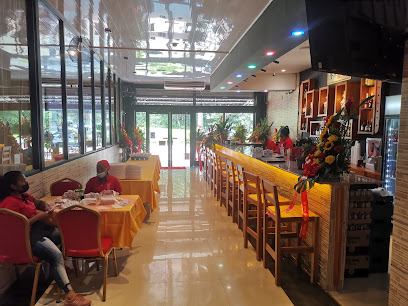
Restaurante Cafe Cristobal
Discover authentic Panamanian flavors at Restaurante Cafe Cristobal in Colón – where every meal is a celebration of local cuisine.
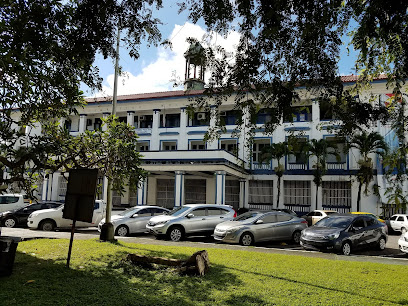
More Amore Coffee
Experience authentic Panamanian flavors at More Amore Coffee in Colón - your go-to destination for great coffee and local cuisine.
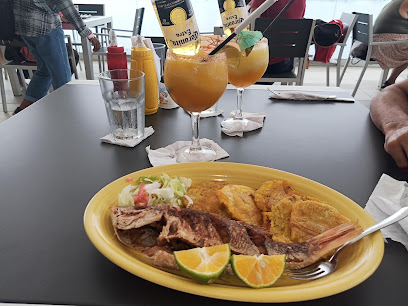
Restaurante Jenny liang
Discover authentic Panamanian cuisine at Restaurante Jenny Liang in Colón – where every dish tells a story.
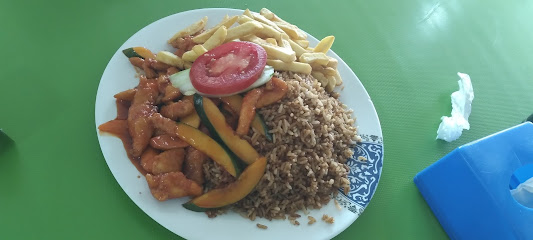
The Dock Restaurant
Experience delightful dining at The Dock Restaurant in Shelter Bay Marina – where fresh flavors meet stunning waterfront views.
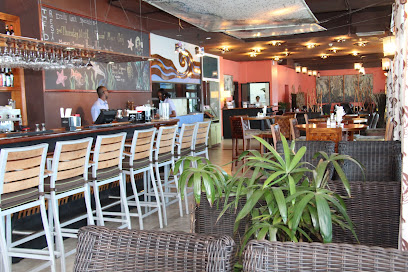
King's Table
Experience authentic Panamanian cuisine at King's Table in Colón – where every bite tells a story.
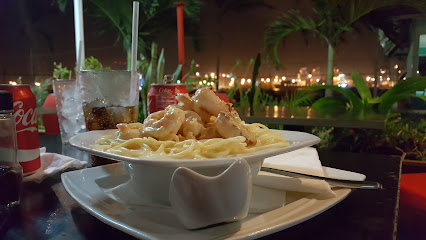
Markets, malls and hidden boutiques
Colon Free Zone
Explore the Colon Free Zone: A premier duty-free shopping destination in Panama offering luxury goods and great savings.
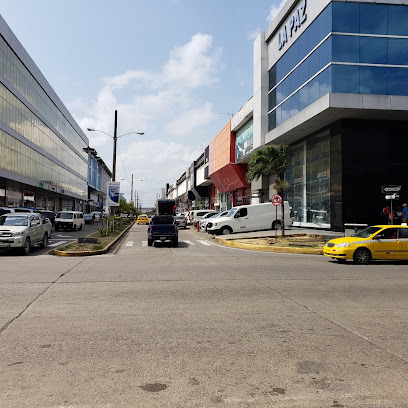
Plaza Cuatro Altos
Discover the vibrant Plaza Cuatro Altos, a shopping haven in Colón, Panama, featuring diverse shops, local goods, and delightful eateries.
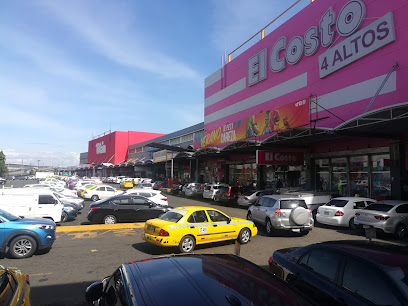
Colón 2000 Mall
Experience shopping, dining, and fun at Colón 2000 Mall in Colón, Panama - a vibrant hub for locals and tourists alike.
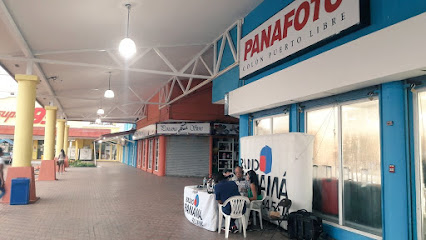
El Maestro | Bolivar
Discover El Maestro in Colón: A trendy clothing store blending local fashion with exceptional service for a unique shopping experience.
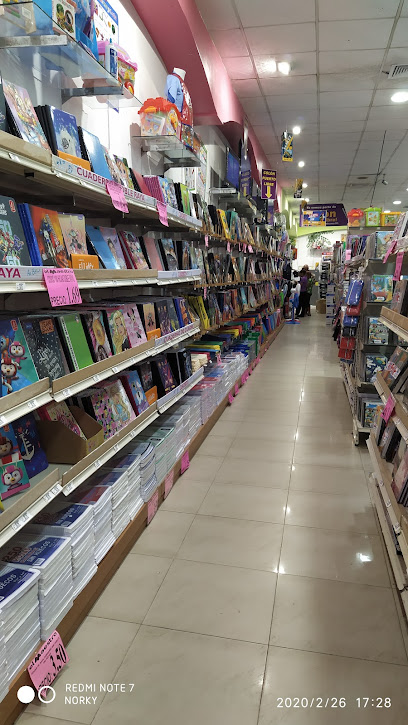
Colón 2000 Duty Free Mall
Discover unbeatable tax-free shopping and local culture at Colón 2000 Duty Free Mall, the ultimate shopping destination in Colón, Panama.
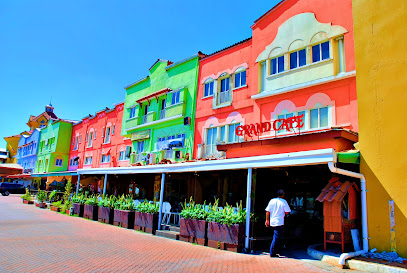
Mtx Outlet
Explore Mtx Outlet in Colón for unbeatable bargains and a diverse selection of products that reflect the charm of Panama.
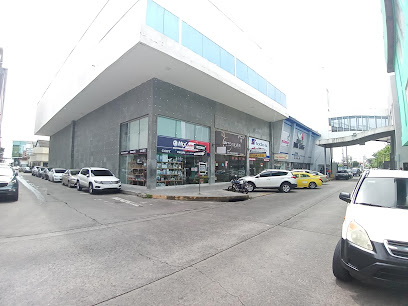
Almacen Punto Favorito
Explore Almacen Punto Favorito in Colón for authentic seasonal goods and unique souvenirs reflecting Panama's rich culture.
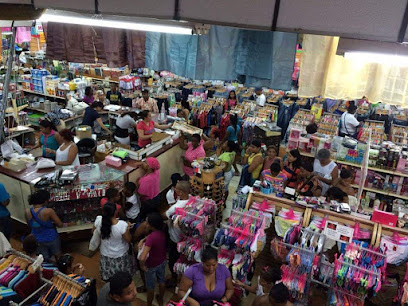
Luzmina's Corner
Discover the artistic spirit of Panama at Luzmina's Corner, a vibrant gift shop in Colón offering unique local crafts and souvenirs.
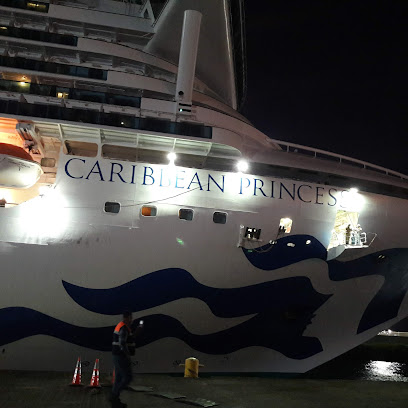
Nina's Closet
Explore Nina's Closet in Colón for unique local finds, handcrafted souvenirs, and a welcoming shopping experience that captures the essence of Panama.
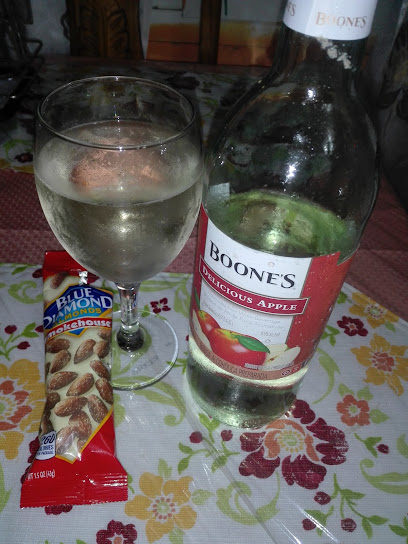
Top Shoes
Discover the exquisite craftsmanship and vibrant artistry at Top Shoes, Colón's premier destination for unique jewelry pieces.
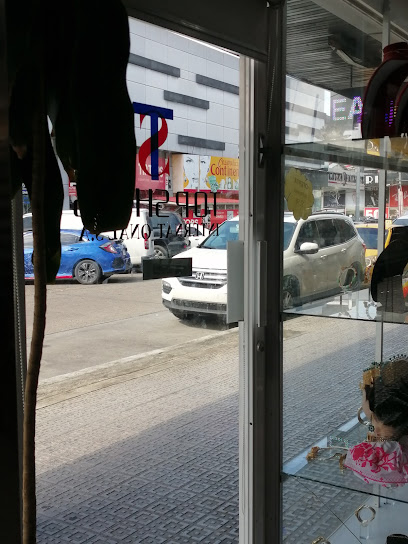
Colon Town By Life Style Shop
Explore trendy clothing and accessories at Colon Town By Life Style Shop in Panama City, where fashion meets local culture.
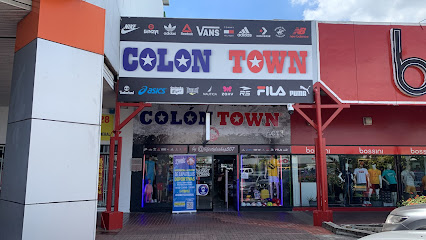
Sirena Home
Discover the essence of Panama at Sirena Home, your go-to store in Colón for unique crafts, souvenirs, and local treasures.
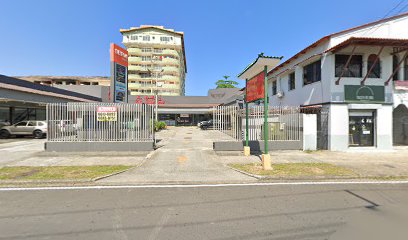
Somos Amigos s.a.
Discover the finest clothing and bedding at Somos Amigos s.a. in Colón, where style meets comfort in a vibrant shopping experience.
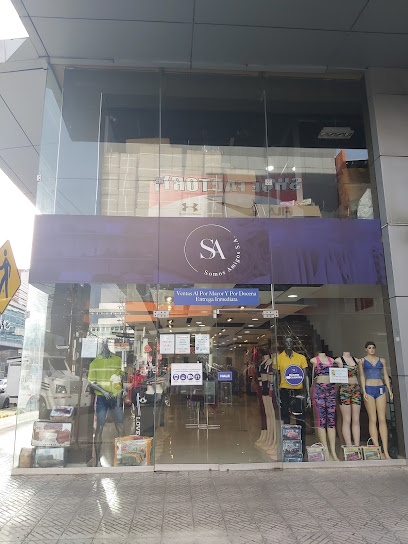
Artesanias Avila
Explore Artesanias Avila in Colón for unique, handcrafted footwear that captures the essence of local craftsmanship and style.
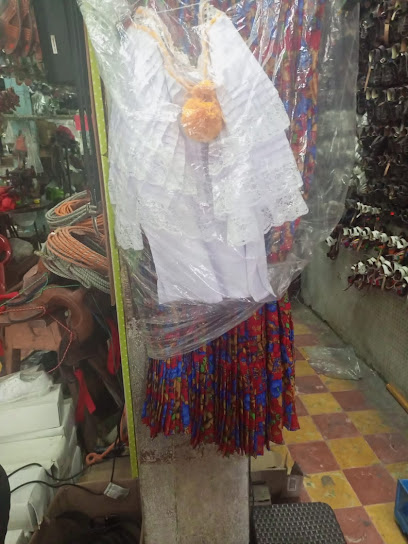
ShoppingC3
Discover the finest selection of boots at ShoppingC3 in Colón, where style meets local craftsmanship in a unique shopping experience.
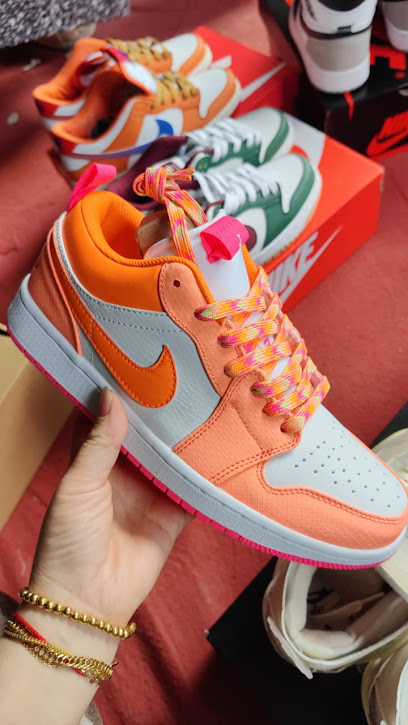
Essential bars & hidden hideouts
Evolution Zona Libre
Discover the vibrant nightlife of Colón at Evolution Zona Libre, where great drinks and friendly faces await you.
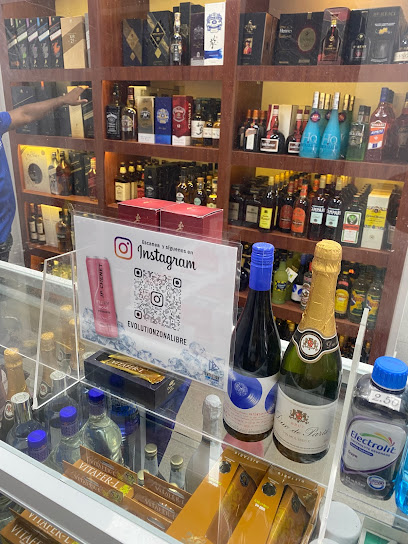
NightClub La Flor
Discover the vibrant nightlife at NightClub La Flor in Colón, where electrifying music and dance await every night.
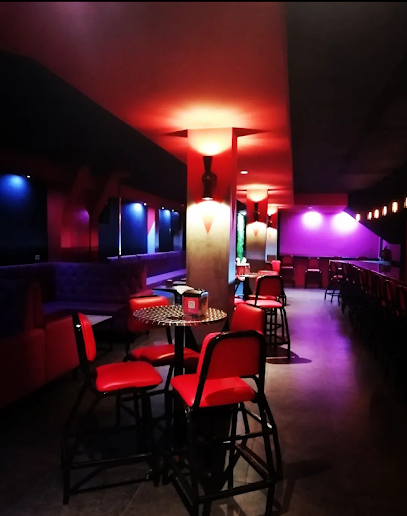
Eleven bar sport
Discover Eleven Bar Sport in Colón - a vibrant sports bar offering great drinks, live games, and an electrifying atmosphere perfect for every fan.
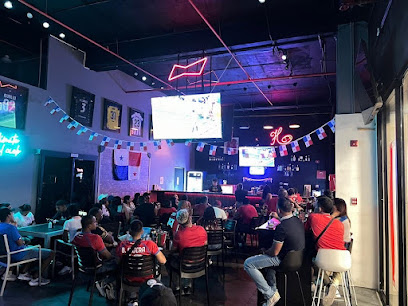
Lucky 7 Bar Colón
Discover the lively Lucky 7 Bar Colón, where local flavors meet a vibrant atmosphere for an unforgettable nightlife experience.
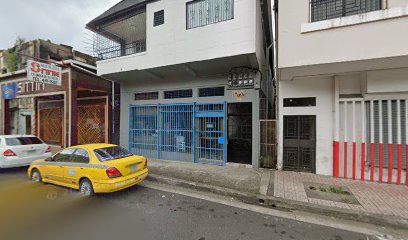
Parrilla Bar THE JUNGLE
Discover the heart of Panamanian cuisine at Parrilla Bar THE JUNGLE, where flavor meets vibrant culture in Colón.
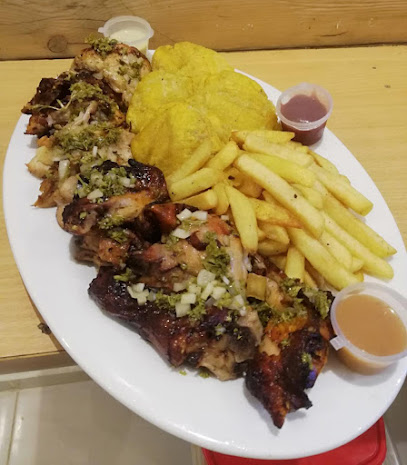
Jupa Internacional
Experience the vibrant nightlife of Jupa Internacional, a must-visit bar in Colón known for its lively atmosphere and refreshing local drinks.
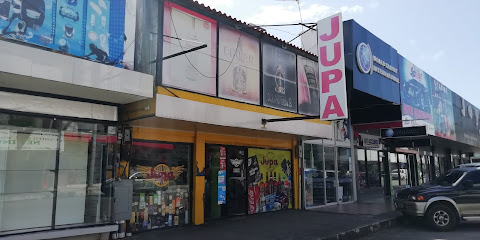
The Justice Bar
Discover the lively ambiance and delicious drinks at The Justice Bar in Colón, where local culture and nightlife meet.
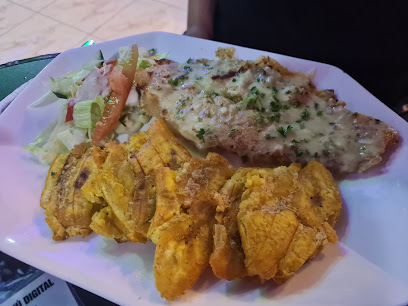
Singular Bar Lounge
Discover the lively atmosphere of Singular Bar Lounge in Colón, Panama, where great drinks and vibrant nightlife await.
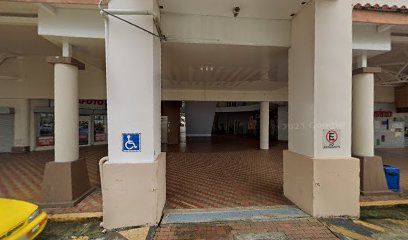
La Esquinita
Experience the authentic atmosphere of Colón at La Esquinita, a beloved local bar that offers delightful drinks and a taste of Panamanian culture.
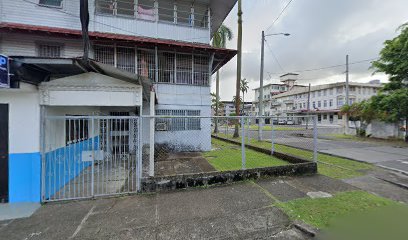
The Bau
Experience the vibrant nightlife of Colón at The Bau, where local flavors and lively atmosphere create unforgettable moments.

Bar la Colón
Experience the vibrant nightlife of Colón at Bar la Colón, where great drinks and friendly vibes await you.
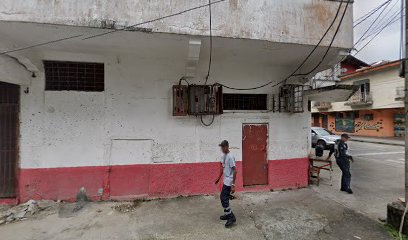
Nigth Club Champagne Rosse
Discover the vibrant nightlife of Colón at Night Club Champagne Rosse, where music, dancing, and unforgettable memories await you.
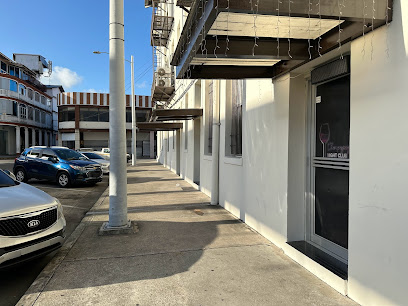
Bar Win's
Experience the heart of Colón's nightlife at Bar Win's, where vibrant culture meets refreshing drinks in a lively atmosphere.
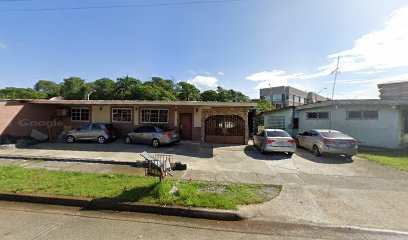
World Logisitic Colón, S. A.
Experience the serene vibes of World Logistic Colón, S. A., a cozy lounge in the heart of Colón Province, Panamá, perfect for relaxation and socializing.
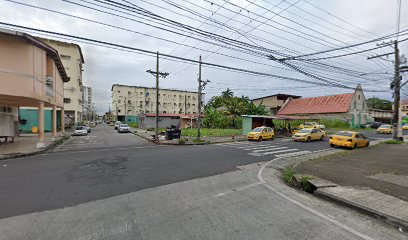
Local Phrases
-
- HelloHola
[oh-lah] - GoodbyeAdiós
[ah-dee-ohs] - YesSí
[see] - NoNo
[noh] - Please/You're welcomePor favor/De nada
[por fah-vor/de nah-dah] - Thank youGracias
[grah-see-ahs] - Excuse me/SorryDisculpe/Lo siento
[dee-skool-pe/loh see-en-toh] - How are you?¿Cómo estás?
[koh-moh ehs-tahs] - Fine. And you?Bien. ¿Y tú?
[byen. ee too] - Do you speak English?¿Hablas inglés?
[ah-blahs een-glehs] - I don't understandNo entiendo
[noh ehn-tyen-doh]
- HelloHola
-
- I'd like to see the menu, pleaseMe gustaría ver el menú, por favor
[meh goos-tah-ree-ah behr ehl meh-noo, por fah-vor] - I don't eat meatNo como carne
[noh koh-moh kahr-neh] - Cheers!¡Salud!
[sah-lood] - I would like to pay, pleaseQuisiera pagar, por favor
[kee-see-eh-rah pah-gahr, por fah-vor]
- I'd like to see the menu, pleaseMe gustaría ver el menú, por favor
-
- Help!¡Ayuda!
[ah-yoo-dah] - Go away!¡Vete!
[veh-teh] - Call the Police!¡Llama a la policía!
[yah-mah ah lah poh-lee-see-ah] - Call a doctor!¡Llama a un médico!
[yah-mah ah oon meh-dee-koh] - I'm lostEstoy perdido
[ehs-toy pehr-dee-doh] - I'm illEstoy enfermo
[ehs-toy ehn-fehr-moh]
- Help!¡Ayuda!
-
- I'd like to buy...Me gustaría comprar...
[meh goos-tah-ree-ah kohm-prahr...] - I'm just lookingSolo estoy mirando
[soh-loh ehs-toy meer-ahn-doh] - How much is it?¿Cuánto cuesta?
[kwan-toh kwehs-tah] - That's too expensiveEs demasiado caro
[ehs deh-mah-see-ah-doh kah-roh] - Can you lower the price?¿Puede bajar el precio?
[pweh-deh bah-har ehl pree-see-oh]
- I'd like to buy...Me gustaría comprar...
-
- What time is it?¿Qué hora es?
[keh oh-rah ehs] - It's one o'clockEs la una
[ehs lah oo-nah] - Half past (10)Media (10)
[meh-dee-ah (deez)] - MorningMañana
[mah-nyah-nah] - AfternoonTarde
[tahr-deh] - EveningNoche
[noh-cheh] - YesterdayAyer
[ah-yehr] - TodayHoy
[oy] - TomorrowMañana
[mah-nyah-nah] - 1Uno
[oo-noh] - 2Dos
[dohs] - 3Tres
[trehs] - 4Cuatro
[kwah-troh] - 5Cinco
[seen-koh] - 6Seis
[says] - 7Siete
[syeh-teh] - 8Ocho
[oh-choh] - 9Nueve
[nweh-veh] - 10Diez
[dyehs]
- What time is it?¿Qué hora es?
-
- Where's a/the...?¿Dónde está...?
[dohn-deh ehs-tah] - What's the address?¿Cuál es la dirección?
[kwal ehs lah dee-rek-see-ohn] - Can you show me (on the map)?¿Puede mostrarme (en el mapa)?
[pweh-deh mohs-trar-meh (ehn ehl mah-pah)] - When's the next (bus)?¿Cuándo es el próximo (autobús)?
[kwan-doh ehs ehl proh-see-moh (ow-toh-boos)] - A ticket (to ....)Un boleto (a ...)
[oon boh-leh-toh (ah ...)]
- Where's a/the...?¿Dónde está...?
History of Colon
-
Colón was founded in 1850 by the Americans as the Atlantic terminal of the Panama Railroad, which was constructed to transport gold prospectors across the Isthmus of Panama during the California Gold Rush. Initially named Aspinwall after one of the railroad's builders, the name Colón was chosen in honor of Christopher Columbus.
-
The construction of the Panama Railroad in the mid-19th century was a pivotal moment for Colón. This engineering feat connected the Atlantic and Pacific Oceans and played a crucial role in international trade. The railroad transformed Colón into a bustling port city and a critical hub for commerce and travel.
-
In the late 19th century, the French began their ambitious project to construct the Panama Canal, with Colón serving as a key logistical base. Despite the project's ultimate failure due to engineering challenges and tropical diseases, the attempt left a significant cultural and architectural imprint on the city.
-
The United States took over the canal project in 1904 and successfully completed it in 1914. Colón's strategic importance grew even more, and it became a central point for American military and commercial activities in the region. This period saw significant infrastructure development in the city.
-
During World War II, Colón was of immense strategic importance due to its proximity to the Panama Canal. The U.S. military established bases in the area to protect this vital waterway from potential Axis threats. The war years brought further economic activity and an increased military presence to the city.
-
Following Panama's independence from Colombia in 1903 and later from U.S. influence in the late 20th century, Colón faced numerous economic challenges. Despite its historical significance and strategic location, the city struggled with poverty, crime, and urban decay. Efforts to revitalize the city have been ongoing.
-
Colón is known for its rich cultural diversity, with influences from Afro-Caribbean, Chinese, Indian, and Indigenous communities. This melting pot of cultures is reflected in the city's festivals, cuisine, and vibrant arts scene. The annual Carnival of Colón is one of the city's most celebrated events, showcasing its unique cultural heritage.
-
Established in 1948, the Colón Free Trade Zone is the largest free port in the Americas and the second largest in the world. It plays a vital role in the local and national economy, facilitating international trade and attracting businesses from around the globe. This zone has cemented Colón's status as a global commercial hub.
Colon Essentials
-
Colon is easily accessible from Panama City. The most convenient way to get there is by car, which takes approximately 1.5 to 2 hours via the Panama-Colon Expressway. Alternatively, you can take a bus from Albrook Bus Terminal in Panama City, which offers frequent services to Colon. The journey by bus typically takes about 2 to 2.5 hours. For a more scenic route, you can also take the Panama Canal Railway, which runs parallel to the Panama Canal and offers stunning views. The train ride takes around an hour.
-
Colon has a variety of transportation options. Taxis are readily available and relatively inexpensive, but make sure to agree on a fare before starting your journey, as they often don't use meters. For public transport, buses and minibuses (known as 'diablos rojos') operate within the city and to nearby areas. Ride-sharing apps like Uber are also available, though coverage may be limited. Renting a car is another option, especially if you plan to explore areas outside of Colon.
-
The official currency of Panama is the Balboa (PAB), but the U.S. Dollar (USD) is also widely accepted and used interchangeably. Credit cards are accepted in most hotels, restaurants, and larger shops, but it's advisable to carry cash, especially for smaller establishments and local markets. ATMs are available throughout Colon, but be cautious when withdrawing money and avoid using ATMs in isolated or poorly lit areas.
-
While Colon has many attractions, it is known for having areas with high crime rates. Avoid wandering into neighborhoods like Barrio Norte and Barrio Sur, especially after dark. Stick to well-known tourist areas and avoid displaying valuables openly. Always be cautious with your personal belongings and stay aware of your surroundings. It's advisable to use registered taxis or ride-sharing services rather than walking alone, especially at night.
-
In case of an emergency, dial 911 for immediate assistance. For non-emergency situations, the local police station and medical facilities are available in Colon. It is recommended to have travel insurance that covers medical emergencies. For minor health issues, there are numerous pharmacies in the city where you can purchase over-the-counter medications. Keep a list of emergency contacts and your embassy's phone number handy.
-
Fashion: Do dress comfortably, but avoid overly revealing clothing. Lightweight, breathable fabrics are best due to the tropical climate. Religion: Do respect local customs and traditions. When visiting religious sites, dress modestly and remove hats. Public Transport: Do be cautious when using public transport; it can be crowded and a hotspot for pickpocketing. Don't engage in loud conversations or eat while on the bus. Greetings: Do greet people with a friendly 'Hola' and a handshake. It's polite to use formal titles like 'Señor' or 'Señora'. Eating & Drinking: Do try local foods and drinks, but always check if street food is prepared hygienically. Don't refuse an offer to share a meal; it's considered impolite.
-
To experience Colon like a local, visit the Colon Free Zone, one of the largest free-trade zones in the world, where you can find various goods at tax-free prices. Explore the local markets like the Mercado Público for fresh produce and local crafts. Engage with the locals; they are usually friendly and willing to share tips about the best places to eat and visit. Don't miss the chance to see the Panama Canal's Gatun Locks, and for a unique experience, take a boat tour of the canal.
Trending Landmark in Colon
-
Panamá Viejo
-
Parque Municipal Summit
-
Gamboa Rainforest Reserve
-
Agua Clara Locks Visitor Center
-
Parque Nacional Soberanía
-
Millennium Plaza
-
Fort San Lorenzo
-
Colón 2000 Mall
-
Paseo Marino
-
Parque Nacional Chagres
-
Rey | Calle 13
-
Centro de Visitantes Agua Clara
-
Park of Youthfulness
-
Parque Nacional Portobelo
-
Puerto de Cruceros
Nearby Cities to Colon
-
Things To Do in Portobelo
-
Things To Do in Panama City
-
Things To Do in San Blas Islands
-
Things To Do in Chitre
-
Things To Do in Las Tablas
-
Things To Do in Bocas del Toro
-
Things To Do in Boquete
-
Things To Do in David
-
Things To Do in Volcan
-
Things To Do in Puerto Viejo
-
Things To Do in San Jose
-
Things To Do in Manuel Antonio
-
Things To Do in Sincelejo
-
Things To Do in Cartagena
-
Things To Do in Jaco











